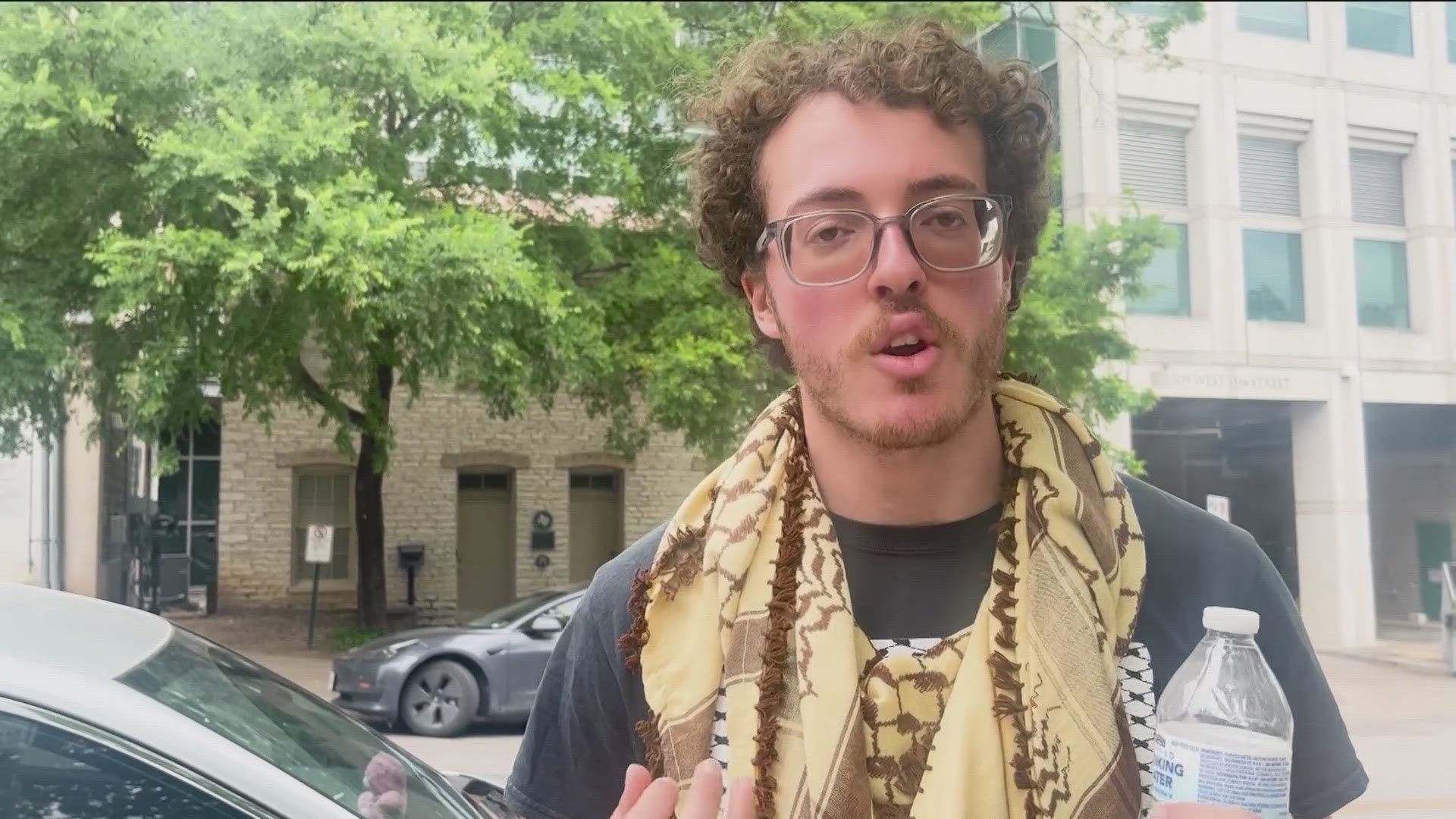AUSTIN, Texas — The University of Texas at Austin faces a new federal lawsuit over its response to pro-Palestine protests on campus in April.
In a new court filing, a UT student named Ammer Qaddumi claims the university violated his First Amendment rights by threatening to suspend him for three semesters and keep him off campus after he helped organize the protest that happened on April 24.
Qaddumi was arrested that day, but the charge against him was dropped. He says a faculty council at UT has ruled the protests did not violate university rules, so he's calling the disciplinary action "unlawful."
In response, a spokesperson for UT told KVUE that for now, the university won't comment on the lawsuit itself. Instead, they'll handle this matter in the courts.
Last month, a report released by a committee at UT said university leaders violated their own institutional rules when contacting law enforcement in response to the protests.
According to the report, the seven-member committee also discovered the university’s claims that protesters violated rules – including the unauthorized wearing face masks – “lack[ed] adequate foundation.” The university and its police department claimed all of the violations justified arrests and student discipline.
Around the time the protests happened, UT President Jay Hartzell issued multiple statements saying UT had indications the protesters planned to occupy UT long-term. He said while UT supports peaceful protests and the constitutional right to free speech, it will not tolerate occupations on campus and it will enforce campus rules and policies.
UT claims there were several reasons as to why they called in extra law enforcement, one being in response to a social media post from the protest organizers. The post mentioned occupying the South Lawn and verbiage similar to what happened on other college campuses. But the UT committee said the university acted preemptively.
"It was a question of 'call the police before the event or call the police after the event had started,'" Hartzell said.
The study was commissioned after protests that occurred on campus on April 24 and April 29. More than 100 demonstrators were arrested after clashing with law enforcement between both protests. Much of the large crowd was made up of students who had walked out of class to participate.
No one who was arrested during the protests was formally charged, as prosecutors and magistrate judges found that those arrested did not meet the lowest standard to be charged.

